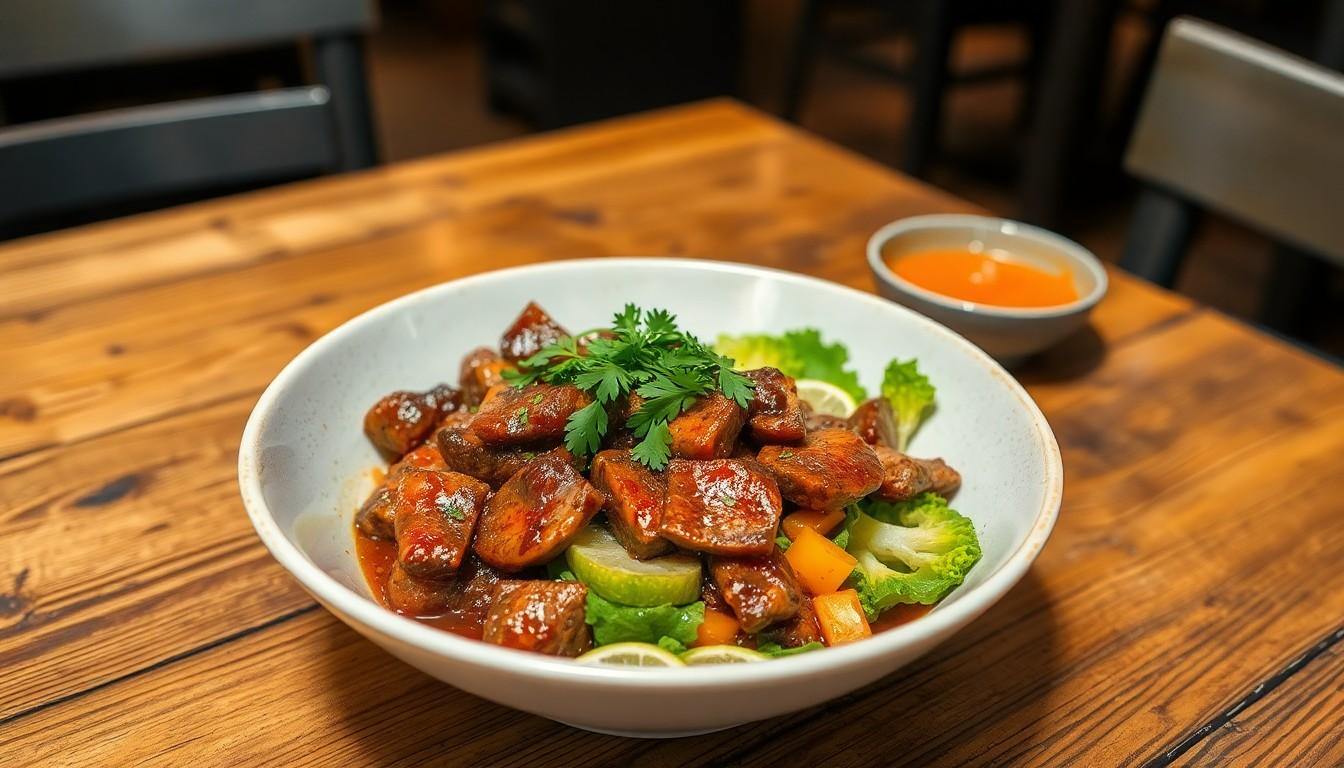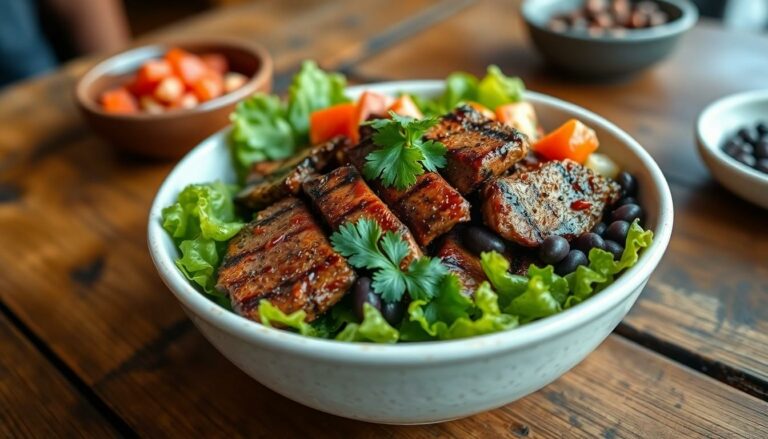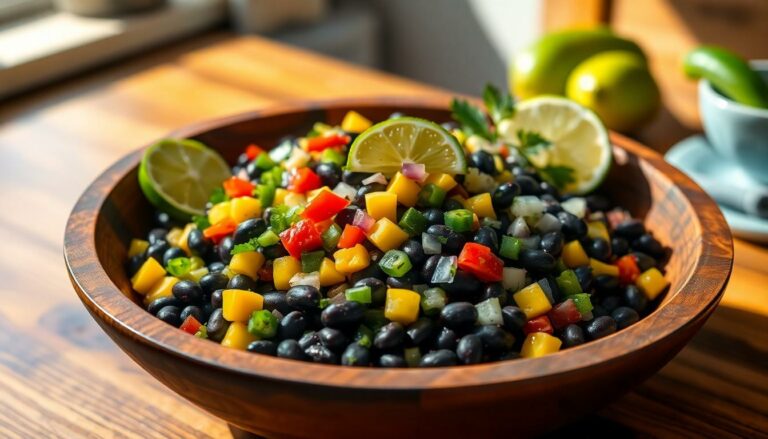When it comes to satisfying cravings, Chipotle steak hits the mark like a culinary bullseye. But before diving into that delicious burrito or bowl, it’s worth taking a moment to consider what’s really in that tender, marinated steak. Is it a guilt-free indulgence or a sneaky calorie bomb?
Table of Contents
ToggleOverview of Chipotle Steak
Chipotle’s steak stands out due to its distinct taste and satisfaction factor. Understanding the flavors and cooking methods reveals more about this popular menu item.
Flavor Profile
Chipotle steak features a robust and smoky flavor profile. The marination includes spices such as garlic, cumin, and chili, enhancing the meat’s natural taste. Each bite offers a mix of savory and slightly spicy notes. Many customers appreciate the subtle hint of citrus that balances the richness of the beef. Fresh cilantro also contributes an herbaceous freshness. Together, these elements create a unique taste experience loved by many.
Cooking Method
Cooking method plays a vital role in achieving the steak’s signature flavor. Chipotle grills its steak over an open flame, which imparts a charred, smoky exterior. This technique locks in juices, creating a tender interior. The cooking process involves marinating the steak for a minimum of one hour, allowing the flavors to infuse thoroughly. Once cooked, chefs slice the steak against the grain, ensuring maximum tenderness. This preparation enhances the overall meal quality, satisfying varying preferences.
Nutritional Breakdown

Chipotle’s steak provides a substantial nutritional profile that appeals to health-conscious diners. Understanding this breakdown aids in making informed choices.
Macronutrients
Chipotle’s steak contains approximately 150 calories per serving. Protein stands out, contributing around 25 grams, essential for muscle repair and growth. Fat content totals about 7 grams, including both saturated and unsaturated fats. Carbohydrate presence remains minimal at around 1 gram, making it suitable for low-carb diets. Effective meal planning incorporates these macronutrient ratios based on individual dietary needs.
Micronutrients
Micronutrient content enhances the nutritional value of Chipotle’s steak. Iron, vital for oxygen transport in the blood, reaches approximately 15% of the daily value per serving. Zinc, necessary for immune function, also makes an appearance, providing about 10% of the daily requirement. Additionally, the presence of B vitamins, particularly B12, supports energy metabolism. The flavors from spices and herbs contribute a range of antioxidants, enhancing overall health benefits associated with this dish.
Health Benefits of Chipotle Steak
Chipotle’s steak offers several health benefits, making it a thoughtful choice for diners. It provides rich protein sources that support muscle growth and repair while fitting into various dietary preferences.
Protein Content
Chipotle’s steak contains approximately 25 grams of protein per serving. Such a high protein level makes it an excellent option for those focused on fitness or muscle-building. Consuming protein helps with satiety, reducing hunger and promoting weight management. Steak’s quality protein supports muscle recovery post-exercise, making it favorable for active individuals. Every serving significantly contributes to daily protein needs, with about 50% of the recommended daily intake for average adults.
Vitamins and Minerals
Chipotle’s steak is not just a protein powerhouse; it also supplies essential vitamins and minerals. Each serving delivers around 15% of the daily value of iron, which is crucial for oxygen transport in the body. Zinc content reaches about 10% of the daily value, playing a vital role in immune function and wound healing. B vitamins, present in Chipotle’s steak, aid energy metabolism, helping to convert food into usable energy. Incorporating this nutritious steak into meals enhances overall nutrient intake, contributing positively to a balanced diet.
Comparison with Other Proteins
Chipotle’s steak stands out among various protein options. Comparing steak with chicken reveals distinct nutritional profiles.
Chicken vs. Steak
Chicken serves as a popular protein choice, known for its low-calorie count and high protein content. A serving of grilled chicken typically contains around 165 calories and approximately 31 grams of protein. In contrast, Chipotle’s steak has about 150 calories and offers 25 grams of protein. While chicken has a slightly lower fat content, both proteins contribute significantly to muscle repair and growth. Chili and garlic in Chipotle’s steak add unique flavors, making it appealing to many diners.
Tofu vs. Steak
Tofu provides a plant-based alternative, catering to vegetarian and vegan diets. A typical serving of tofu holds about 144 calories and around 16 grams of protein. While Chipotle’s steak delivers more protein per serving, tofu boasts essential amino acids and is lower in saturated fat. Incorporating spices into steak enhances its taste, while tofu’s mild flavor complements various dishes. Nutritionally, choosing between steak and tofu depends on dietary preferences and protein sources required for individual health goals.
Tips for Healthy Eating at Chipotle
Healthy eating at Chipotle involves making informed choices to optimize nutrition. Diners can customize their meals to suit their health goals and preferences.
Customizing Your Order
Adapting the order enhances health benefits significantly. Start with a salad or burrito bowl as a base to increase vegetable intake. Selecting brown rice instead of white adds fiber and nutrients. Choosing black beans provides additional protein while keeping fat content low. Opting for salsa instead of sour cream reduces calories while adding flavor. Adding guacamole offers healthy fats but consider portion size. Finally, use grilled steak for protein without excess calories. Personalizing options keeps meals nutritious while satisfying taste buds.
Portion Control
Understanding portion sizes contributes to balanced meals. A regular serving size for steak is approximately 4 ounces, but portioning can vary based on individual needs. It’s smart to share a meal or combine smaller portions to control calorie intake. Sizing options for tortillas range from standard to small; choosing a smaller option minimizes carbs. One can ask for fewer toppings to maintain portion balance. Monitoring portion sizes helps manage overall energy intake while enjoying the flavors Chipotle offers. Prioritizing portion control supports achieving healthy eating goals effectively.
Chipotle’s steak stands out as a flavorful and nutritious option for those seeking a satisfying meal. With its impressive protein content and essential vitamins and minerals, it aligns well with health-conscious choices. Diners can enjoy the robust taste while benefiting from the nutrients that support overall well-being.
By making informed decisions and customizing meals, individuals can incorporate this delicious steak into a balanced diet without compromising their health goals. Whether paired with fresh vegetables or enjoyed in moderation, Chipotle’s steak proves to be a versatile and appealing choice for various dietary preferences.





